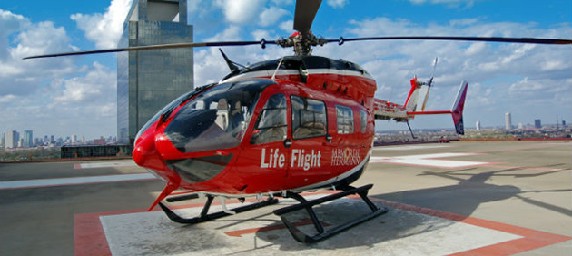

Memorial Hermann offers the largest network of emergency centers in Greater Houston. We’re ready to care for you and your family.
From 24/7 emergency rooms (ER) at Memorial Hermann hospitals and Memorial Hermann Convenient Care Centers to the Level One trauma center in the Texas Medical Center, Memorial Hermann offers the facilities and expertise to treat you and your family -- no matter what the emergency entails. Memorial Hermann ERs provide treatment of a wide array of illnesses and injuries that require immediate medical attention.
If you are experiencing a medical emergency, call 911 or go to the nearest emergency room.
When to call 911 or go to an emergency room immediately?
If you have symptoms of heart attack or stroke, or feel that your “life or limb” is in danger, call 911 or go to the nearest emergency room immediately.
Memorial Hermann hospitals and Convenient Care Centers treat patients of all ages.
Call the free 24/7 Nurse Health Line. In Houston: (713) 338-7979. Outside Houston: 1 (855) 577-7979
The emergency rooms at Memorial Hermann hospitals and Memorial Hermann Convenient Care Centers are open 24 hours a day, 7 days a week to see patients seeking emergency medical treatment. Staffed by emergency medicine trained health care providers, Memorial Hermann ERs are well equipped to diagnose and treat minor or major illness of injury. With locations throughout the greater Houston community, you can feel comfort knowing Memorial Hermann offers a variety of emergency care and trauma services. From Humble to The Woodlands and Sugar Land to Pearland, Memorial Hermann has a vast network of ER locations.
With Emergency Rooms located throughout the greater Houston area, the award-winning Memorial Hermann Life Flight air ambulance program and the services of Memorial Hermann-Texas Medical Center, a Level I Trauma center, Memorial Hermann offers the most comprehensive network of emergency services available in southeast Texas. Each year, some 400,000 people seek treatment in a Memorial Hermann ER.
All of our ERs follow a triage system. The first professional caregiver you will likely meet is a triage nurse. This individual is usually one of the more experienced ER nurses, whose primary role is to obtain a brief focused history and to perform a rapid physical assessment in order to determine the severity of illness.
Triaging (a process that helps us rapidly and safely determine which patients need to be seen as a priority and which can safely wait to be seen) is essential because of the nature of emergency rooms.
Several patients may arrive at the same time with varying severity of physical concerns. As you would expect, patients whose conditions are considered the most serious will be seen first. If your condition is not critical, you may be sent to the admitting area to complete the registration process.
Tell the triage nurse if symptoms worsen or if new symptoms develop. The nurse will reassess you and document the new information on your chart.
Your wait will depend on how busy the ER is and the nature of your condition. In general, evenings, weekends and holidays are busiest. During peak periods, wait times may be as long as several hours.
Although trips to the Emergency Room can be unexpected, it’s important to try to be prepared in case of an emergency. Here are a few important items to have on hand for your visit:


A designated Level I Trauma Center provides high-quality care to both adult and pediatric patients and offers a full spectrum of services.
Learn More

A critical care air medical transport service serving the Greater Houston area. Founded in 1976, the service operates around the clock with crews performing more than 3,500 missions each year.
Learn More